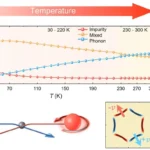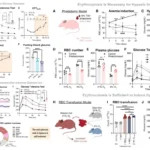Key Points:
- An international study reveals that 25% of psoriasis patients experience joint symptoms.
- The study seeks 2,000 more participants to reach its goal of 25,000 recruits. Up to one-third of psoriasis patients may develop psoriatic arthritis (PsA).
- The HIPPOCRATES Prospective Observational Study monitors patients over 3 years. The study launched in the UK and expanded to other countries.
- Genetic analysis aims to identify patients at higher risk for PsA. Psoriatic arthritis is challenging to diagnose and can be debilitating.
Early results from an international study reveal a significant burden of joint symptoms among psoriasis patients, with 25% of the 712 patients studied so far experiencing such issues. This study, led by researchers from the Universities of Oxford and University College Dublin and supported by The University of Manchester, has recruited nearly 3,000 participants. However, the research team seeks an additional 2,000 psoriasis patients to investigate further.
Psoriasis, a condition characterized by flaky patches of skin covered with white scales, affects approximately 3% of people in the UK and Europe. The study’s findings corroborate existing knowledge that up to one-third of psoriasis patients may develop psoriatic arthritis (PsA), a painful and inflammatory condition affecting joints and tendons.
Professor Laura Cotes, an Associate Professor at the University of Oxford who spearheads the project, emphasized the inability to predict which psoriasis patients will develop joint problems. She stated, “This research will help us to design ways to prevent people with psoriasis from developing arthritis, by offering potential drug treatments or lifestyle interventions such as exercise or stress management.”
The HIPPOCRATES Prospective Observational Study (HPOS) monitors psoriasis patients over three years to track the development of PsA. Participants complete online questionnaires and provide fingerprick blood samples via prepaid post. After launching in the UK in July 2023, the study expanded to Ireland in August 2023, Greece in February 2024, and Portugal in April 2024. The Oxford team aims to extend HPOS to 12 additional European countries, ultimately recruiting 25,000 psoriasis patients.
Professor Ann Barton from The University of Manchester, leading the genetic analysis, explained the significance of identifying patients at higher risk for PsA. “We know that some patients with psoriasis will go on to develop psoriatic arthritis. If we could identify which patients are at higher risk for arthritis development, it could mean that in the future, those people could receive preventative treatment.”
Russ Cowper, a Manchester resident living with PsA, described the challenges of the condition. “Psoriatic arthritis is so hard to diagnose, it can lead to real confusion for patients. GPs are not always skilled enough to spot the symptoms, and they may manifest in various ways. Receiving a diagnosis is a relief, allowing patients to plan for the future knowing they have an ongoing condition.”
Cowper highlighted the debilitating nature of PsA, which can cause sudden, severe joint pain. “It is a miserable condition and very tiring. Pain can cause lack of sleep, and if hands are affected, even applying creams becomes difficult, risking a psoriasis flare.”





